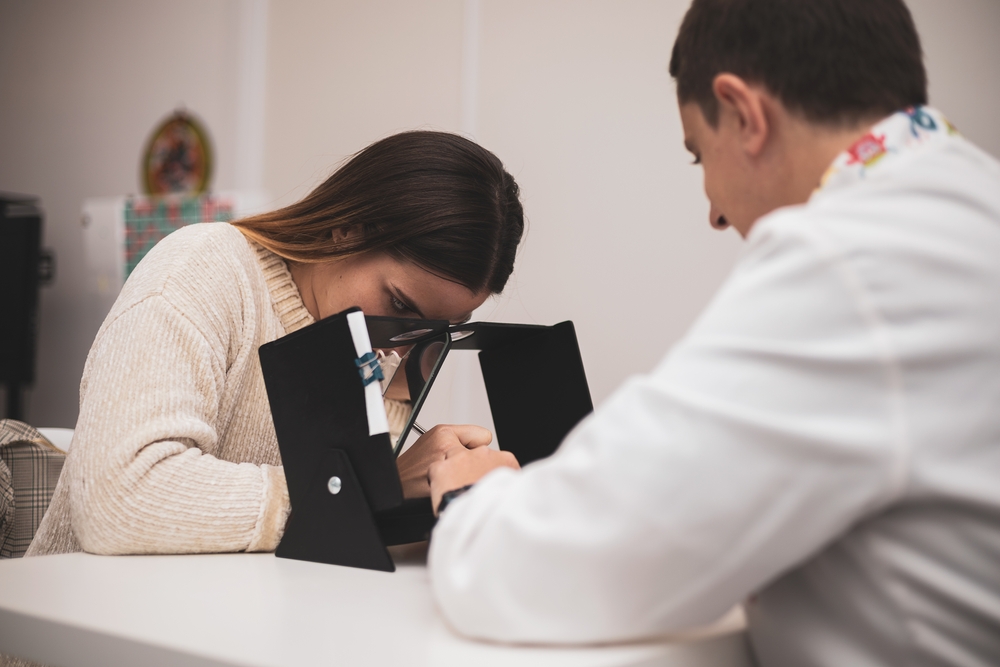
You squint at your computer screen, even with glasses. Words blur when you read, and headaches flare up by midday. You have tried new prescriptions, but something still feels off. You may wonder if this is as good as your vision gets.
The answer might surprise you. For many, glasses or contacts alone do not fix the root problem. They are like band-aids for a deeper issue. Vision therapy offers a different path.
Vision Therapy Is Not Just Eye Exercises
Vision therapy is a program that helps your eyes and brain work better together. It is like exercises for your vision.
This therapy can help with problems like how your eyes line up, how well you can see things, and how your eyes move. A qualified professional helps you with exercises that fit what you need.
Common Problems Vision Therapy Addresses
Vision therapy can help with some eye problems. It is suitable for:
Lazy eye (when one eye doesn’t see well).
Crossed eyes (when the eyes do not look straight).
Tired eyes from looking at screens or reading a lot.
Nearsightedness, i.e., trouble seeing far away things.
How a Typical Session Works
A vision therapist will look at how your eyes move and make a plan just for you. This plan might involve special glasses, computer games to help you focus, fun activities, and exercises to do at home.
You will have sessions that last about 30 to 60 minutes, usually once a week for a few months. It is best to go regularly to learn and develop new visual skills.
Why Glasses Are Not Always Enough
Corrective lenses help people see better when they cannot see things near or far. But they cannot fix how the eyes work with the brain.
Sometimes, a person’s eyes may not work together well, making looking at things up close difficult. Their eyes might move apart, causing double vision or tiredness. Glasses will not help with this. Special exercises like vision therapy can help the eyes work better together.
How to Know If It Is Right for You
It is best to start with a functional vision test. This test checks how well your eyes follow moving things. It also looks at how quickly you can focus on something near and then something far away.
The test helps you see how well you judge distances, like catching a ball or parking a car. It also checks if you notice things out of the corner of your eye. If there are any problems, therapy might help you feel better.
Myths About Vision Therapy
Myth: It is only for kids.
Fact: Adults can use it, too, especially if they are recovering from a stroke or an eye injury.
Myth: It takes too long.
Fact: Some programs help people feel better in just a few weeks. A little time spent now can stop big problems later.
Myth: It is not proven.
Fact: Trusted groups say vision therapy works and is safe.
Your eyes do not work in isolation. They are part of a system that includes your brain, muscles, and nerves. Vision therapy strengthens this system, improving balance, coordination, and confidence. It is not just about seeing clearer; it is about living better.
For more on vision therapy, visit Dr. Newman Optometry & Vision Therapy at our Beverly Hills, California, office. Call (323)653-4078 to schedule an appointment today.
https://www.optometrists.org/vision-therapy/guide-to-vision-therapy/what-is-vision-therapy/
https://my.clevelandclinic.org/health/treatments/vision-therapy



